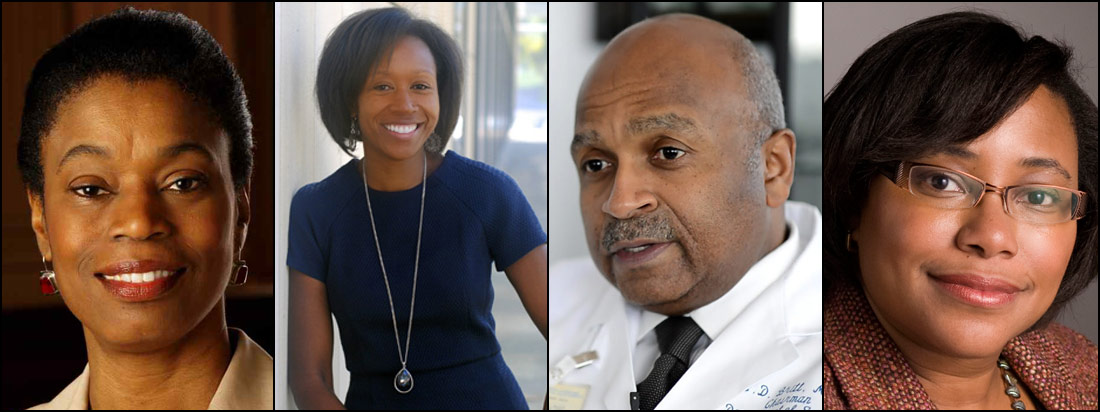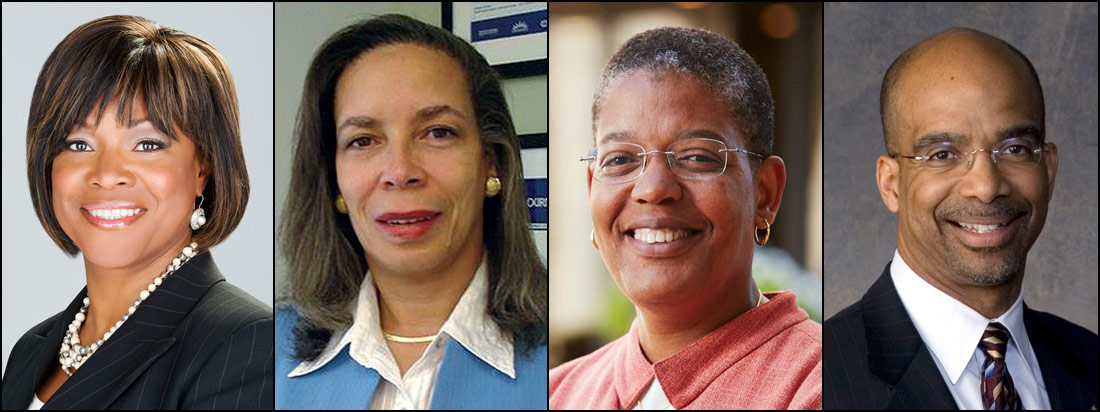 The National Academy of Medicine, formerly known as the Institute for Medicine, was founded in 1970. Election to the National Academy of Medicine is considered one of the highest honors in the fields of health and medicine and recognizes individuals who have demonstrated outstanding professional achievement and commitment to service. With the 70 new members from the United States, there are now 1,947 active fellows of the National Academy of Medicine along with 146 foreign associates.
The National Academy of Medicine, formerly known as the Institute for Medicine, was founded in 1970. Election to the National Academy of Medicine is considered one of the highest honors in the fields of health and medicine and recognizes individuals who have demonstrated outstanding professional achievement and commitment to service. With the 70 new members from the United States, there are now 1,947 active fellows of the National Academy of Medicine along with 146 foreign associates.
While the National Academy does not release data on the racial or ethnic identity of its membership, an analysis of the list of the 70 new members of the National Academy of Medicine by JBHE finds that eight, or 11.4 percent, are African Americans. Six of the eight new African American members are women. A year ago, five African Americans were elected to the National Academy of Medicine. They made up 7 percent of the new members that year.
Here are brief biographies of the eight African Americans who were recently elected to the National Academy of Medicine.

Anita L. Allen is vice provost for faculty, the Henry R. Silverman Professor of Law, and professor of philosophy at the University of Pennsylvania in Philadelphia. Professor Allen is a graduate of Harvard Law School. She holds a master’s degree and a Ph.D. in philosophy from the University of Michigan. She is an expert on health law and bioethics.
Cheryl Ann Marie Anderson is an associate professor of family medicine and public health at the University of California, San Diego. She joined the faculty at the university in 2012. Dr. Anderson is a graduate of Brown University in Providence, Rhode Island. She holds a master of public health degree from the University of North Carolina at Chapel Hill and a master’s degree and a Ph.D. in epidemiology from the University of Washington.
L.D. Britt is the Henry Ford Professor and the Edward J. Brickhouse chair of the department of surgery at the Eastern Virginia Medical School in Norfolk. He is the former president of the American College of Surgeons, and former president of the Southern Surgical Association. He was the first African American to hold an endowed chair in surgery. Dr. Britt is a graduate of the University of Virginia and Harvard Medical School.
Paula Therese Hammond is the David H. Koch Professor of Engineering and chair of the department of chemical engineering at the Massachusetts Institute of Technology. She holds a bachelor’s degree in chemical engineering and a Ph.D. from MIT. Dr. Hammond also earned a master’s degree at the Georgia Institute of Technology.

Valerie Montgomery Rice is president and dean of the Morehouse School of Medicine in Atlanta. She became president in 2014 and has been teaching at the medical schools since 2011. Earlier she taught at Meharry Medical College in Nashville, Tennessee. A graduate of the Georgia Institute of Technology, Dr. Montgomery Rice received her medical degree at Harvard University.
Lynne Doreen Richardson is department vice chair and professor of emergency medicine at the Icahn School of Medicine at Mount Sinai Hospital in New York City. Dr. Richardson is a graduate of the Massachusetts Institute of technology and received her M.D. at the Albert Einstein College of Medicine in The Bronx, New York.
Michelle A. Williams is dean of faculty at the T.H. Chan School of Public Health at Harvard University. Dr. Williams is a graduate of Princeton University. She holds a master’s degree from Tufts University and a second master’s degree and a doctorate in epidemiology from the Harvard School of Public Health.
Clyde W. Yancy is the Magerstadt Professor of Medicine, chief of cardiology, and vice dean of diversity and inclusion at the Feinberg School of Medicine at Northwestern University. Dr. Yancy is a graduate of Southern University in Baton Rouge, Louisiana. He earned his medical degree at Tulane University in New Orleans.


Yeah! Powerhouses. So proud. Honor to have met Dr. Britt on occasions.